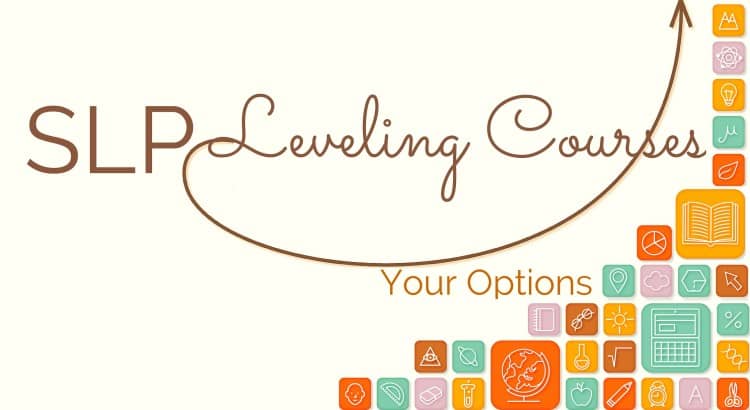If you’re an out-of-field candidate looking into becoming a Speech Language Pathology, you probably need to take a few SLP leveling courses in order to be ready for graduate programs in Speech Language Pathology.
Actually, even if you have an undergraduate degree in Comm. Dis, you might still need a few pre-requisite courses.
There’s a few different options that you’ve got for how to get this done – which is what I’ll cover first. In another post I’ll explain (from my experience) the pros and cons of each option.
Your options are:
- Specific Pre-Requisite Courses
- Post-Baccalaureate Certificate
- Second Degree
- 3 Year Masters (Leveling Including)
Specific Pre-Requisite Courses:
If you know which programs you’re interested in, check and see what pre-requisite classes they require.
Each school is different. If the schools you’re applying to only asks for a few, then take those few and apply. Keep in mind you might not get in just because you have the pre-reqs, and you might need to apply to a different school.
These courses, apart from entry requirements, can also help to boost your GPA, get to know professors for potential letters of recommendation, and boost your application by showing your proven interest in the field.
Unfortunately, this is a really unsafe option because every school is different and you can’t be sure how each school will consider transfer credits. That said, it’s still a decent option if you only need a few courses.
Post-Baccalaureate Certificate
Many schools offer a “certificate” post-baccalaureate program to prepare out-of-field candidates to apply for their masters program. These are a great and a terrible option at the same time.
They’re wonderful because they offer all of a specific school’s pre-requisite courses in a set program and you get to know your future professors.
They’re terrible because they don’t guarantee you entry into their masters programs. In fact, there might be 40 students in the post-bacc program, and only 20 spots for the actual masters program. So, if you don’t get into that school’s masters program, you might still be missing the pre-requisites you need for another school and worse yet, you may have taken extra courses that another school doesn’t require.
Second Degree
This option might seem a little extreme, but it definitely offers you the most opportunities once you’re done. Once you complete a 2nd degree, you’ll be able to apply to almost any masters in SLP program. Unfortunately, I can’t say “every” program because many schools still have some highly specialized requirements.
This might not even take as long as you think! The online 2nd degree program at Utah State University only takes a year if you’re studying full time (12 classes over 2 semesters and one summer).
3 Year Masters (Leveling Including)
This is the best option overall if you’re an out-of-field candidate. Some schools (not many unfortunately), will admit you without any background in the field. They’ll design a custom program (that typically takes an extra year) to include all of your necessary foundational coursework.
My Plan
I’m trying to take a route that leaves me with the most options. First off, I’m only applying to schools with SLP leveling programs.
Second, I’ve been accepted into USU’s online 2nd degree program. Because I’m also working full-time as a teacher, I’ll only have finished 3 classes before December.
Third, I’ll be applying to grad school by the end of 2015 to enter in August 2016. Having those few pre-reqs will help boost my GPA and show the schools I’m a serious candidate.
Finally, if I don’t get in during this first round, I’ll finish the degree at USU in time to reapply again for a second round as an in-field-candidate, which means I can apply to more schools.
For me, given my life situation, this is the best option for now.
So, which route are you going to chose for SLP leveling courses? Let me know in the comments below!

